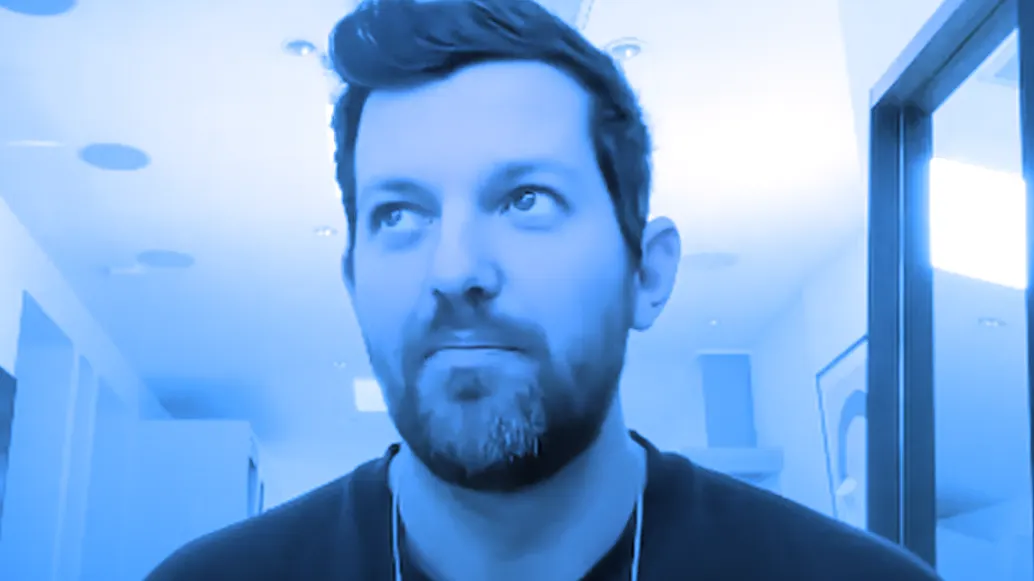You’ve heard of getting paid in crypto, but what about getting paid in NFTs?
Electronic music artist Dillon Francis has accepted a Bored Ape Yacht Club (BAYC) NFT as a part of a Boston nightclub residency and record collab deal with upcoming DJ duo ESCAPΞPLAN, whose musical identities are represented by their Bored Apes.
NFTs are unique tokens that exist on a blockchain and signify ownership over an asset, like a piece of digital art. The BAYC is no stranger to celebrity owners, with Paris Hilton and Eminem among holders.
Francis’ Ape with “DMT” fur was sold for 109 ETH (about $283,000 at current prices) to Randy Greenstein of Big Night Entertainment, and then transferred to Francis a month ago.
Big Night runs a number of notable nightclubs in the Boston area and manages artists including ESCAPΞPLAN.
“I had to have an Ape so that I could be in the music videos with ESCAPΞPLAN,” Francis told Decrypt in an interview.
He plans to release two songs in collaboration with the duo later this year.
Big Night Managing Partner Tim Bonito sees the BAYC NFTs as a way to bring Web3 into music.
“We didn’t want to come in and make an entire cheesy first record about everything in Web3,” Bonito told Decrypt. “I think what’s going to happen is a lot of people are going to discover [ESCAPΞPLAN’s] song, not even realize that they’re two Bored Apes, and then go back and there be some discovery around that. For us, there’s going to be some subtlety to it […] there’s still an entire world of Web2 that we’re still trying to embrace.”
There’s also the possibility that Francis and ESCAPΞPLAN will work with more BAYC-holding musicians on future tracks.
But Francis’ interest in Web3 extends far beyond his newly acquired Ape. He’s been collecting NFTs for about a year, with over 100 such assets in his wallet, and says he first learned about crypto in 2017.
“Back in 2017, when my friend told me to buy Ethereum and Bitcoin […] I already thought I was too late,” he said. “You’re never too late.”
Francis also isn't a one-coin or one-chain maximalist, saying that while he’s looking forward to Ethereum 2.0, he isn’t a big fan of Ethereum’s high gas fees (i.e., transaction costs) or Polygon’s bridging mechanisms.
“Tim and I are the same,” he said, referring to Big Night’s managing partner. “We love Solana. I love Solana … going from paying insane gas fees and the transaction time being so long sometimes [on Ethereum], Solana is incredible. I do think the downfall is that the network somehow goes out sometimes.” (The network has suffered some congestion and outages since September.)
“But instant finality, and I’m paying cents for a transaction, it feels so much better,” he added.
In the metaverse, Francis is working with Decentraland, a 3D virtual environment built on Ethereum, to build a space for his fans. He said it will include a virtual bar, a cannabis shop, and a strip club.
He wants fans to be able to own some of the wall space in his Decentraland club as NFTs, and plans to offer digital wearables that match what’s in his merch shop for physical goods.
When it comes to the music industry, Francis believes there’s a reason so many electronic artists—like Steve Aoki, deadmau5, and 3lau—have become vocal proponents of crypto and NFTs.
“Most electronic music artists are always trying to be on the brink of whatever’s happening in technology because we make music on our computers,” Francis said. “Electronic music doesn’t rely on, you know, Billboard Top 10 hits. We rely on our songs being played in festival circuits or club circuits, and word-of-mouth on blogs … so that’s another part of why this culture and community of Web3 is so interesting to us.”

